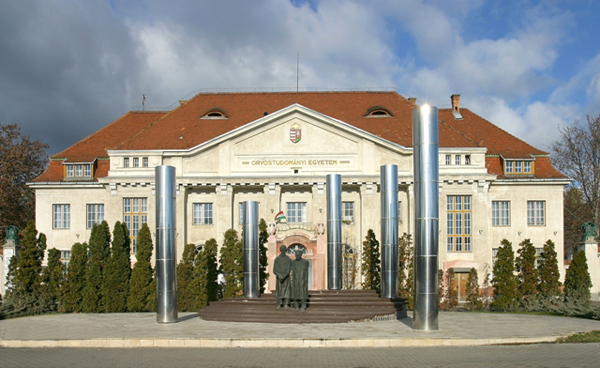In recent weeks, the Anesthesiological and Intensive Care Clinic of the University of Debrecen Clinical Center has received several awards for its outstanding activity in helping organ donation. For several decades, the institution has considered organ donation and the widest possible dissemination of related knowledge to be of particular importance.
The region of Hajdú-Bihar, Szabolcs-Szatmár-Bereg and Borsod-Abaúj-Zemplén counties is the most active in organ donation in Hungary. The region accounts for about half of Hungary’s donors.
This is largely due to the educational and training program that was developed about 20 years ago and is regularly held every year at the Anesthesiology and Intensive Care Clinic of the University of Debrecen Clinical Center. The training is advertised for anesthesiology specialists, candidate specialists, and other specialists involved in transplantation.
This is a regular training program that we organize primarily for professionals in the region. Here, the participants can get to know, among other things, the strict domestic legal regulations related to organ donation and acquire the knowledge and attitude that is essential in order to know what to watch out for and what to do in the case of a brain-dead person so that as many organs as possible are suitable for transplantation,
– explained Fülesdi. Béla, director of the Department of Anesthesiology and Intensive Care at the University of Debrecen Clinical Center.
In Hungary, under strict regulations, after the diagnosis of brain death, organ removal can only take place if the deceased did not make a statement against it during his lifetime. In the case of a donor, on average, three organs are suitable for transplantation.
The kidney is the least sensitive organ, most of the time we can offer it for transplantation, but we strive to ensure that the heart and lungs are also in a transplantable state, so-called multi-organ donation, our goal is to save as many organs as possible. The coronavirus epidemic also made it difficult to donate organs, but despite the fact that the Gyula Kenézy Campus had almost only COVID care and the intensive care units had a much greater burden, it was possible to secure the same number of donors during the pandemic as before the epidemic
– emphasized Professor Béla Fülesdi.
The outstanding activities of the Anesthesiology and Intensive Care Clinic in organ donation have already been recognized by several organizations. Most recently, for example, the National Blood Service awarded the institution with the “Life Donating Hospital” award. The Transplantation Foundation for Renewed Lives recognized the activities of the institution’s director, Béla Fülesdi, with the Szent Kozma és Damján award. Among other things, the professor earned the award by participating in the work of one of the most active donor-representing institutions for decades, supporting and representing the cause of organ donation at the highest professional level, and also being an instructor of further training for organ donation. The professor was awarded the St. Cozma and Damján award in 2019, but due to the coronavirus epidemic, he was only able to receive the award recently.
hirek.unideb.hu


















